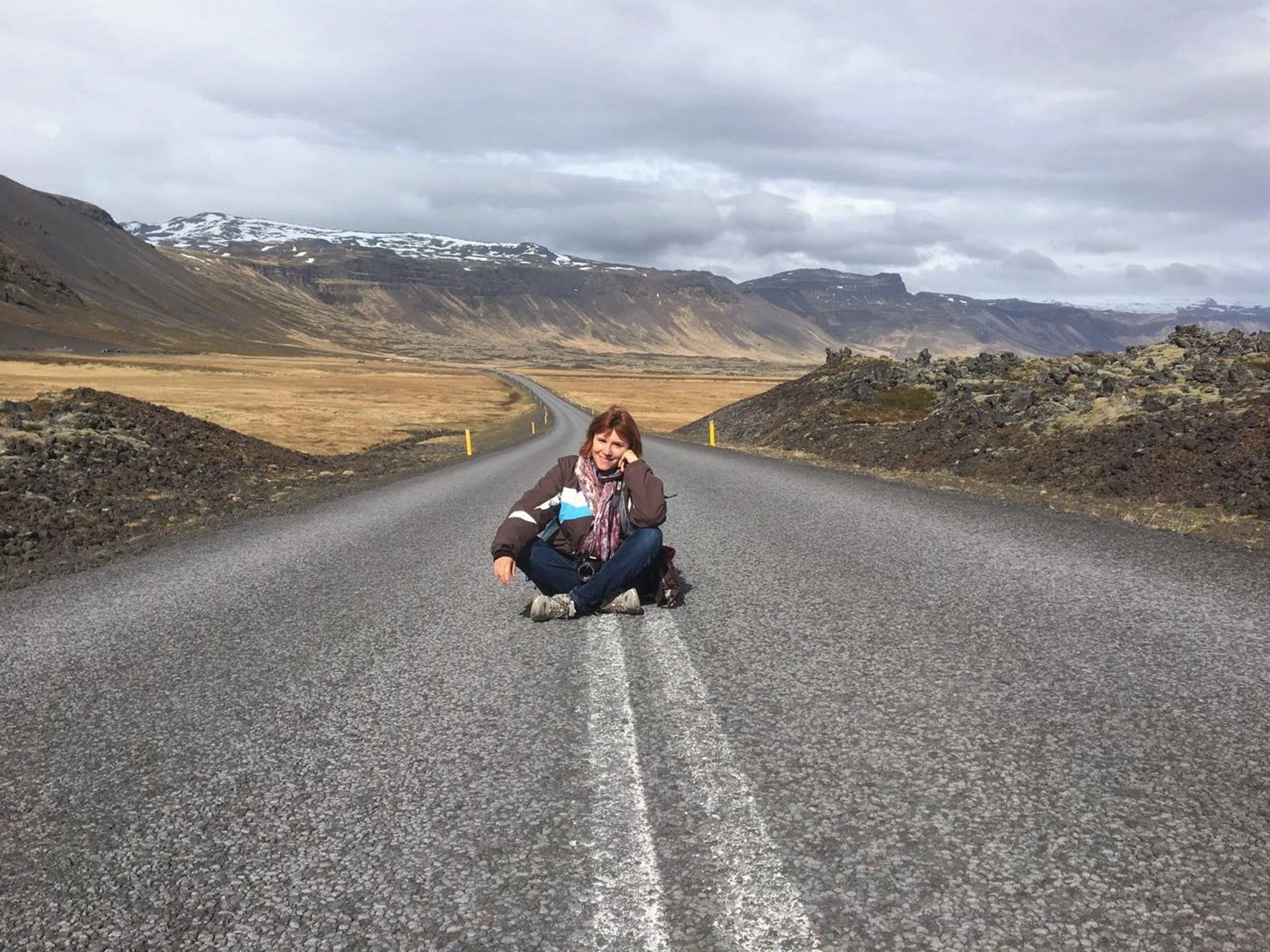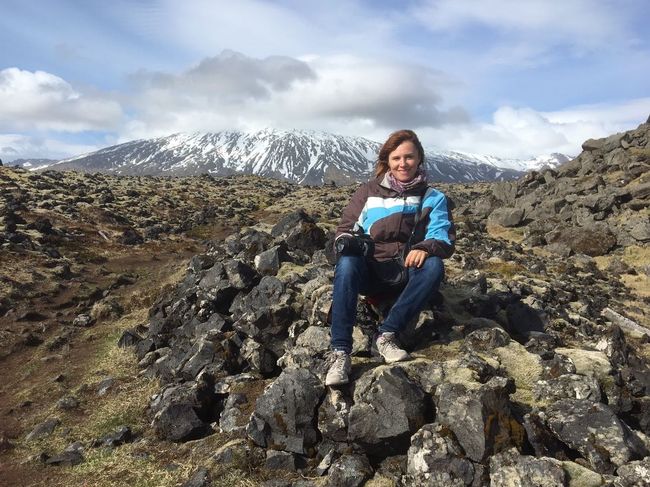Drive along the Amalfi Coast to Salerno
Rakabudiswa: 09.05.2018
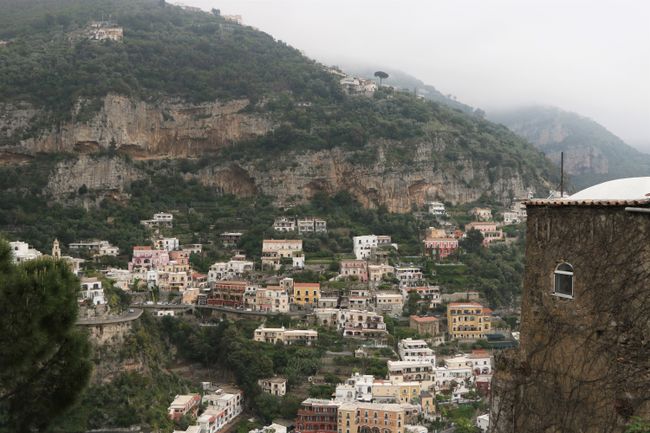
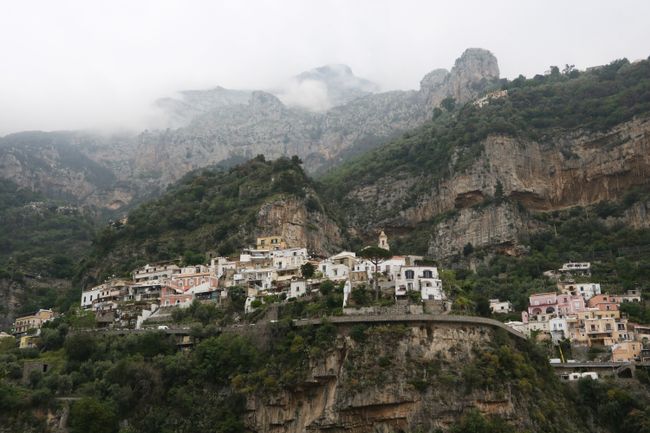
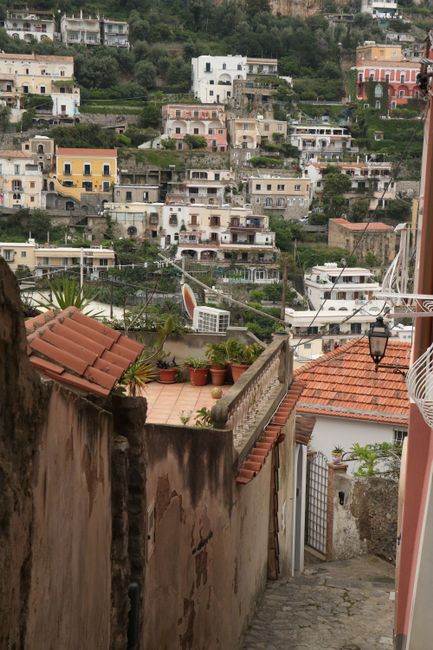
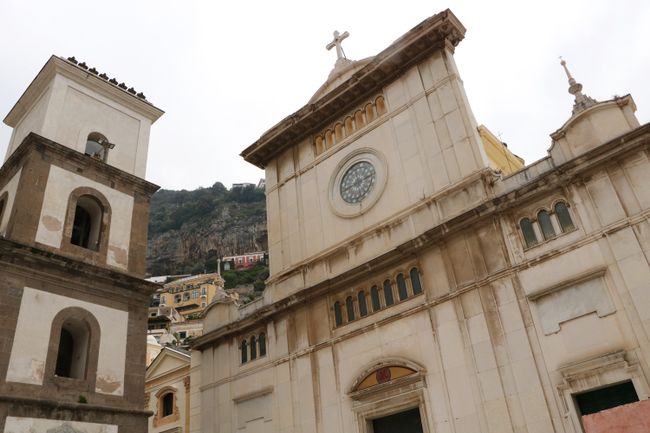
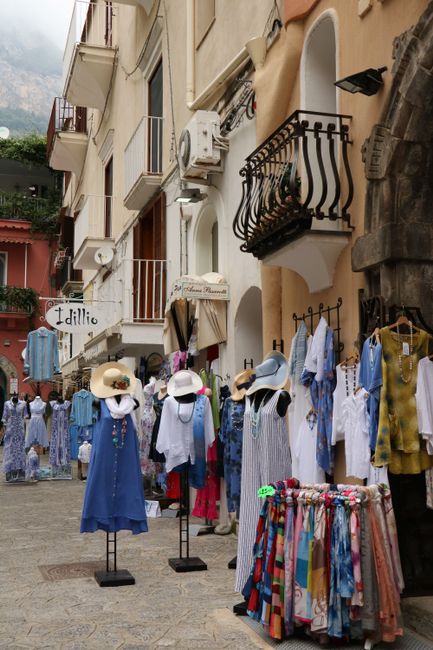
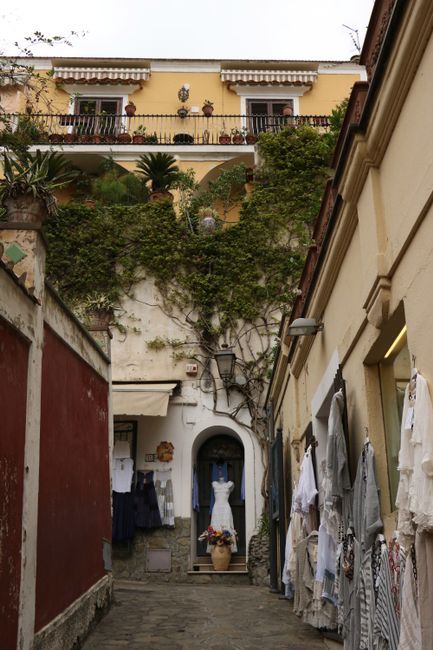
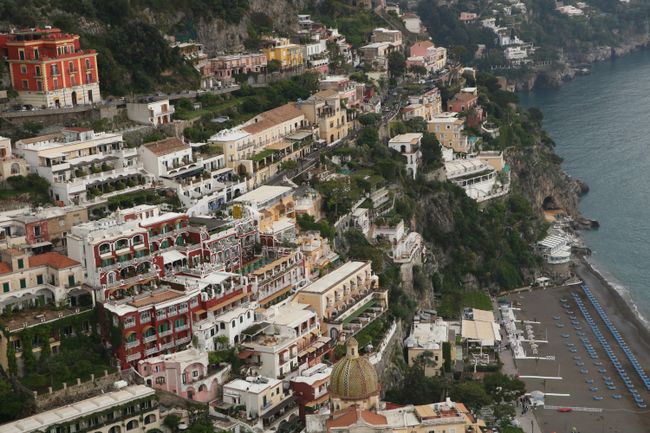
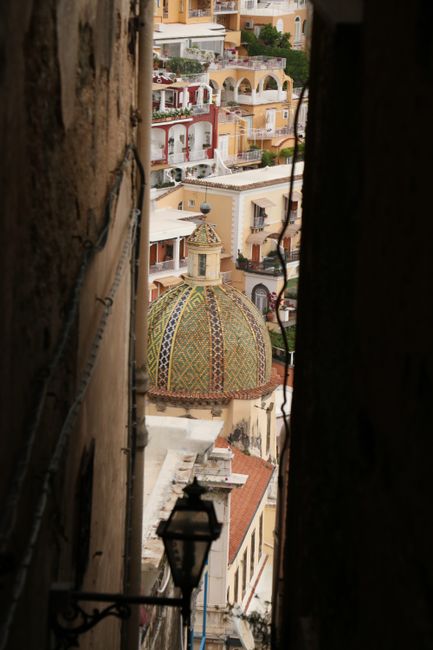
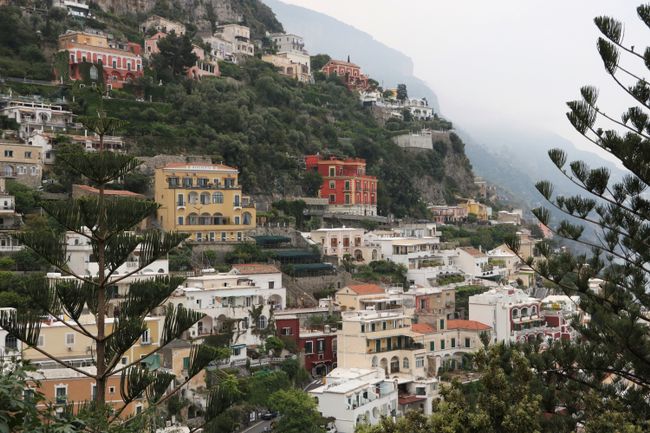
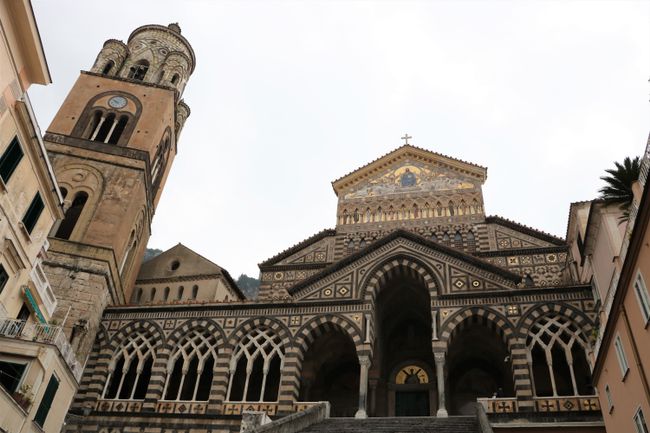
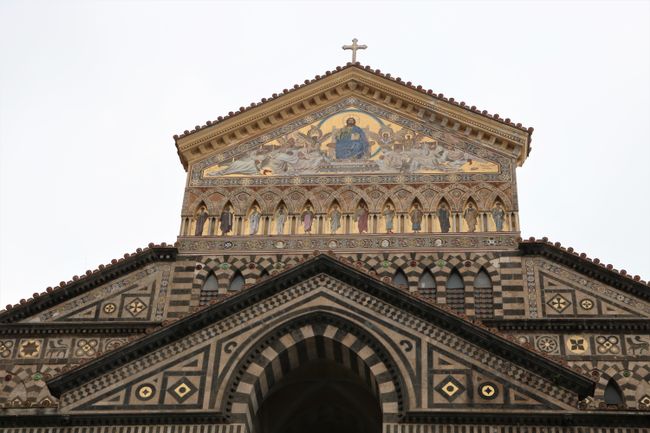
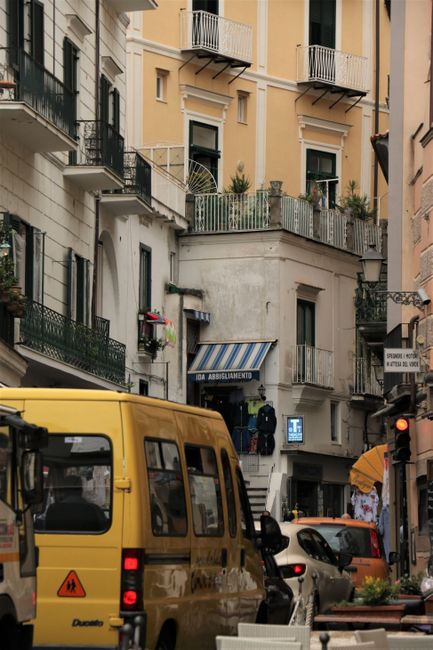
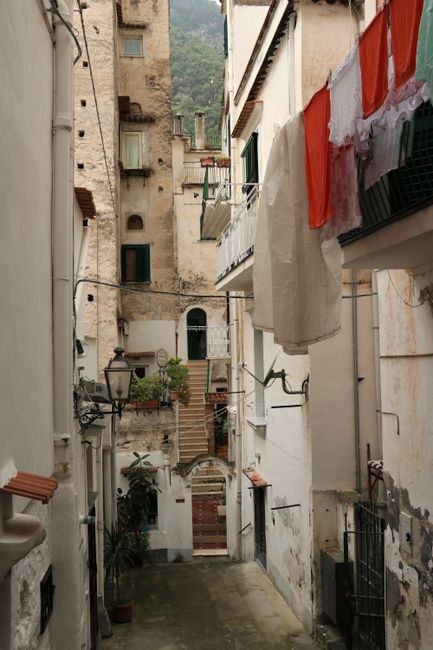
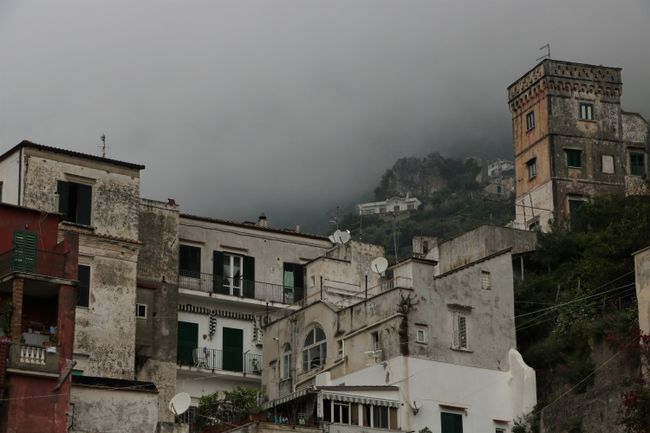
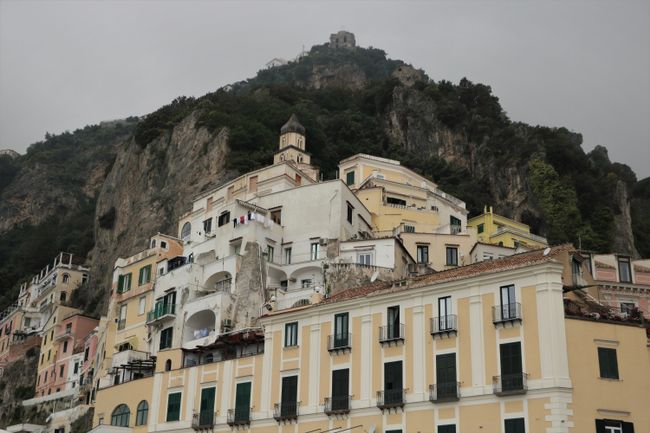
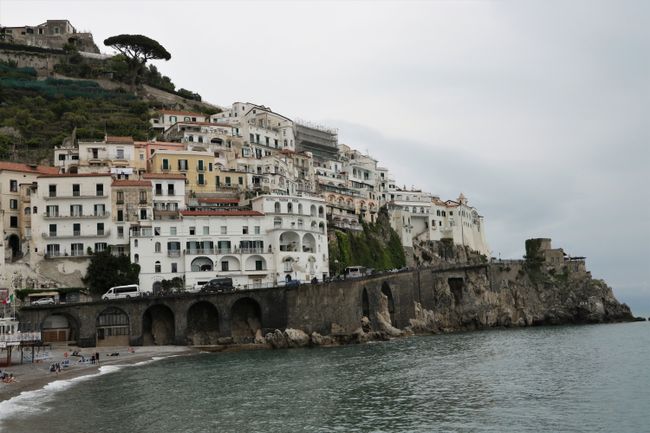
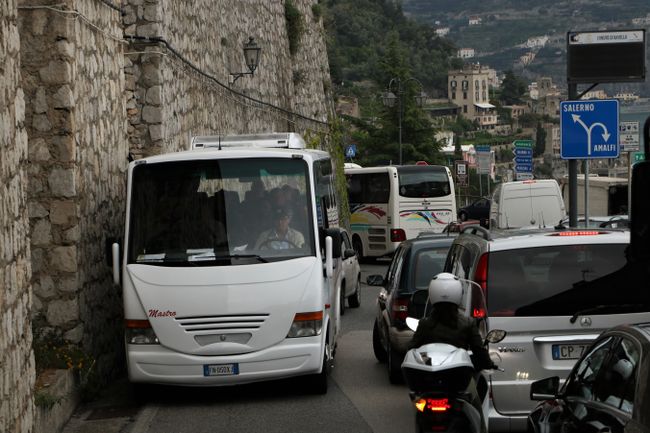
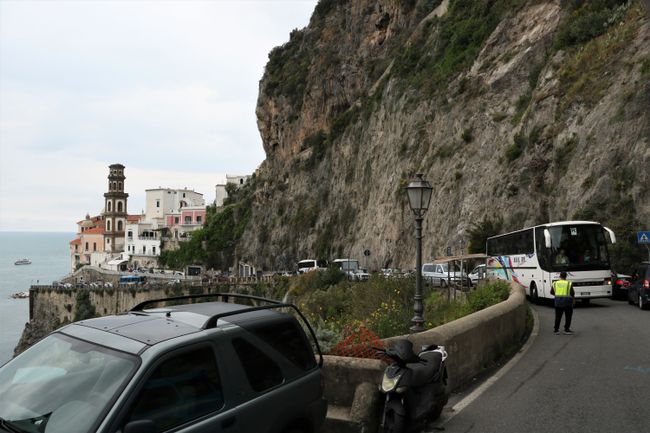
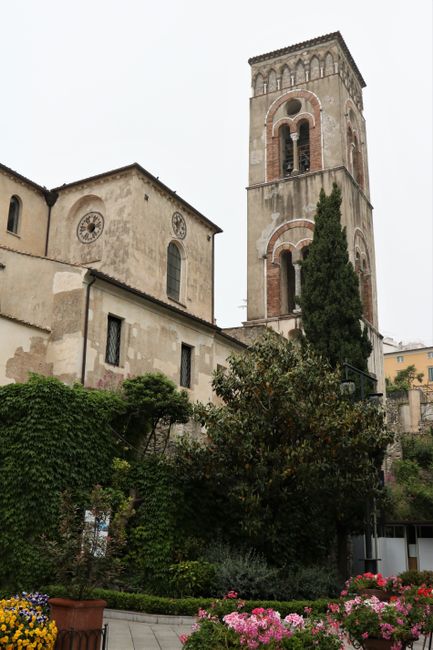
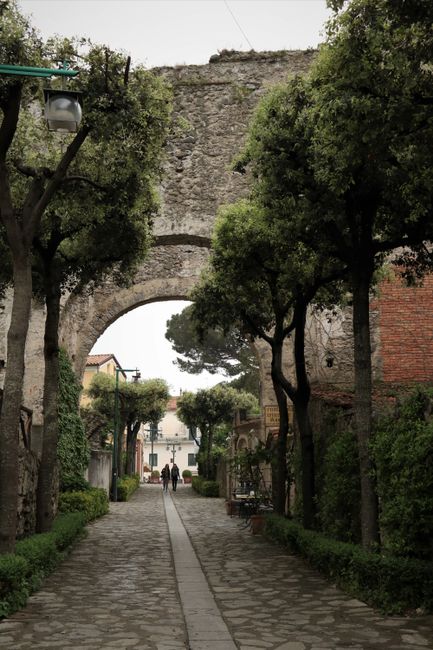
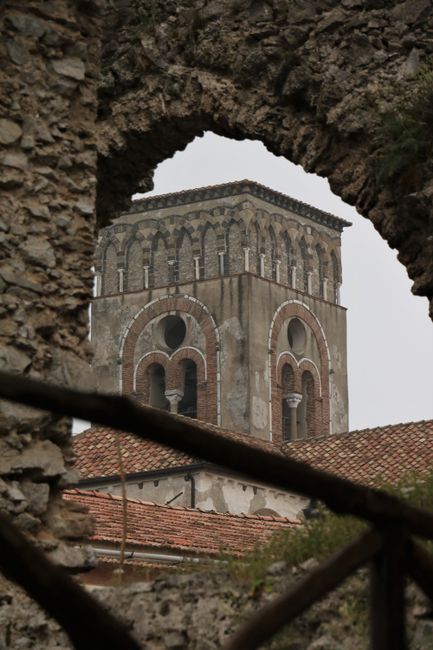
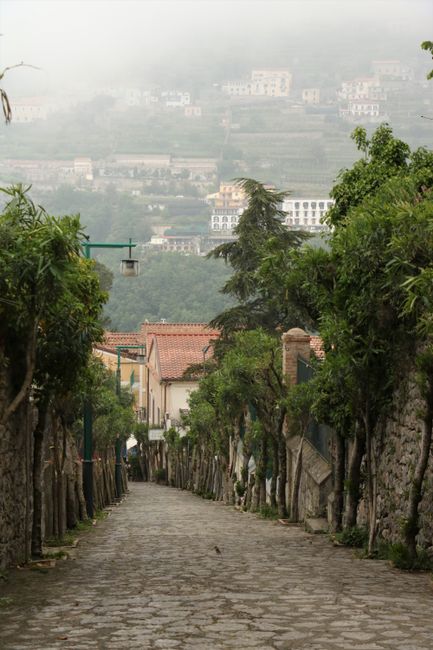
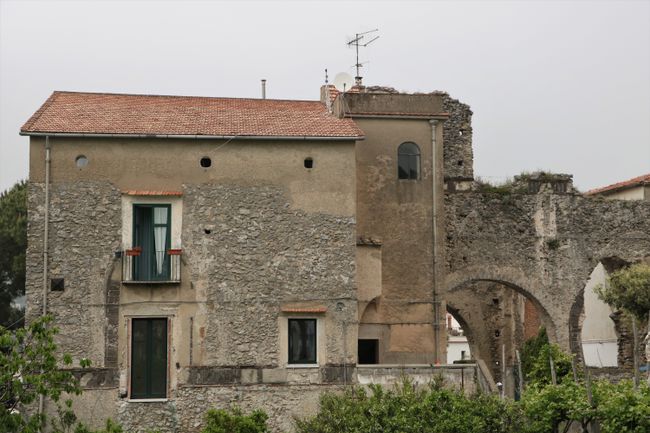
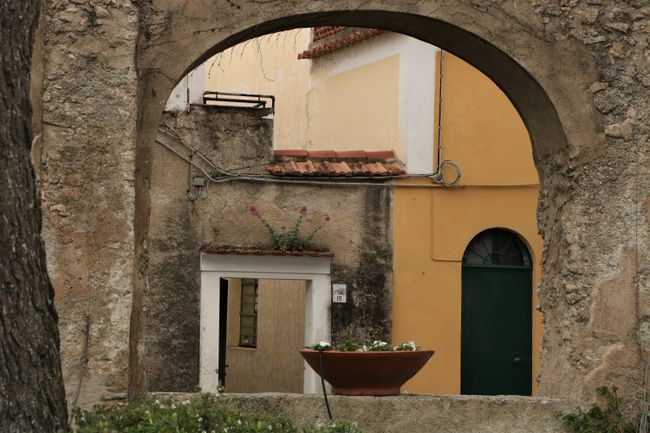
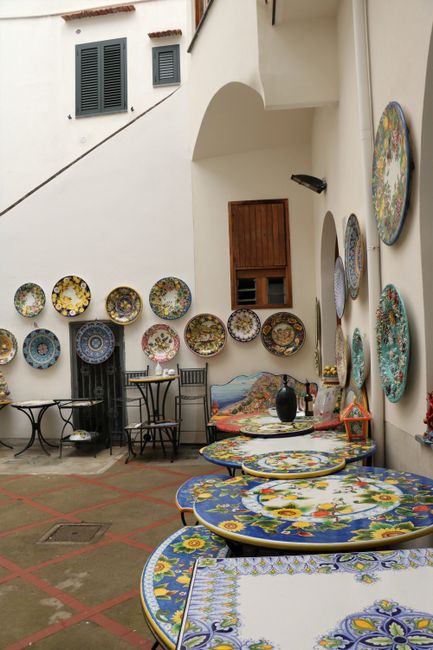
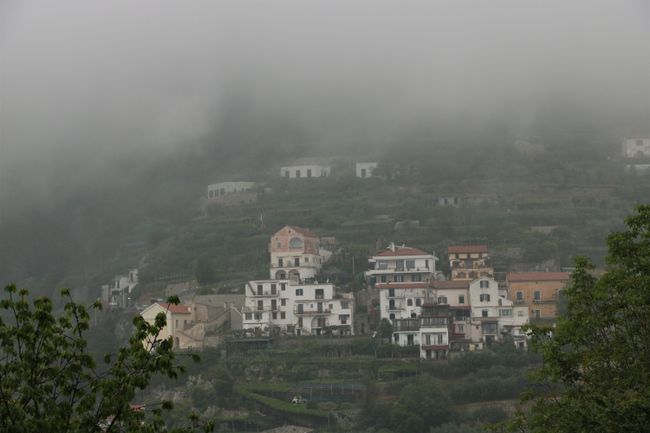
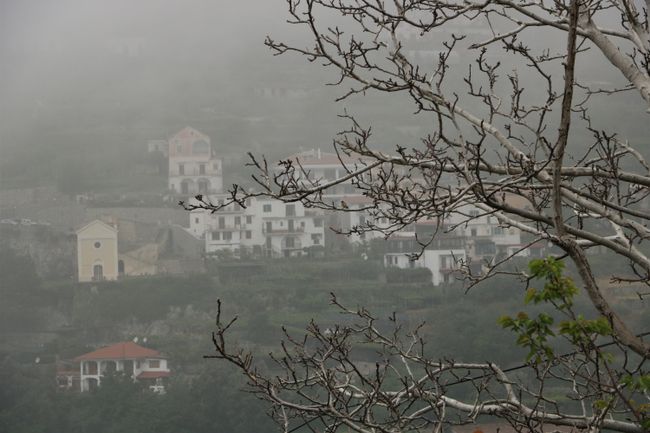
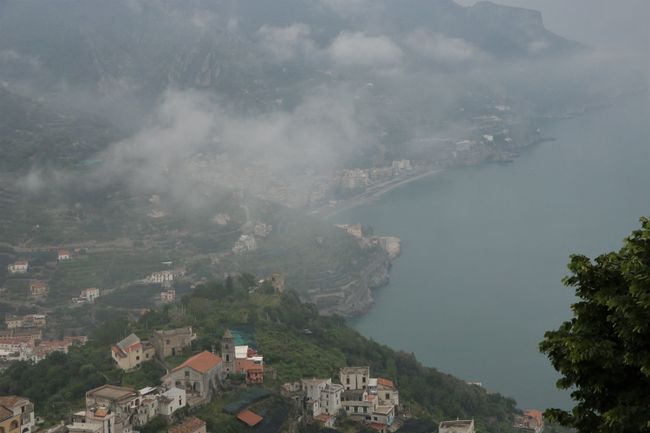
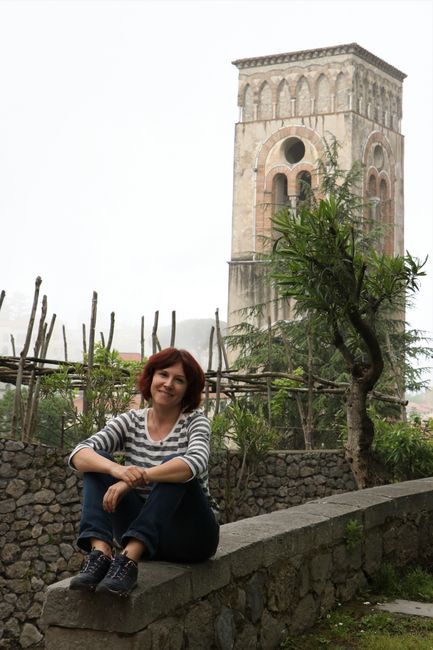
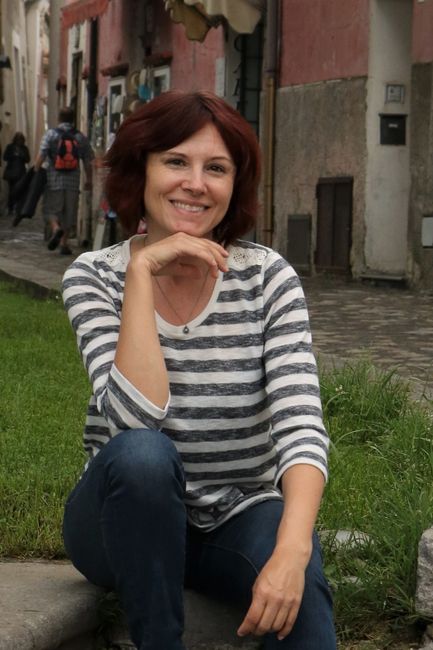
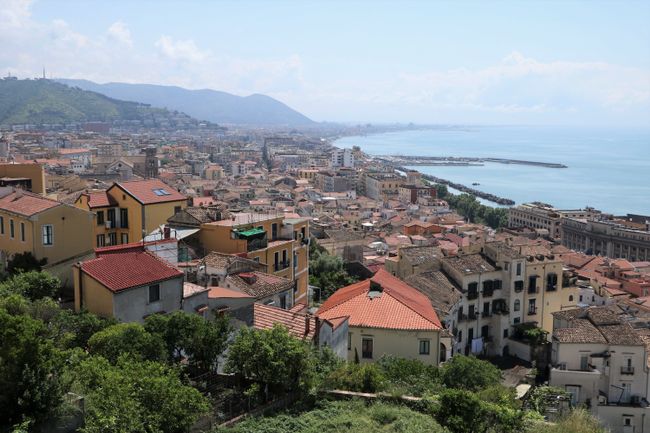
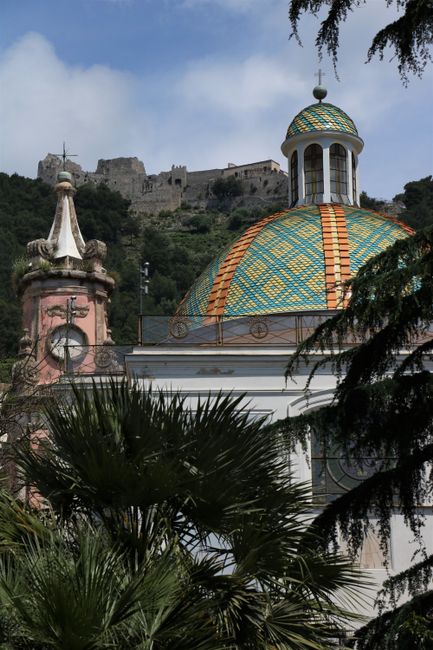
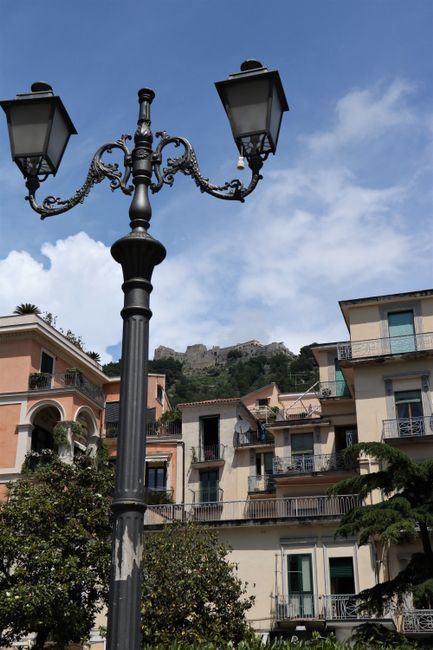
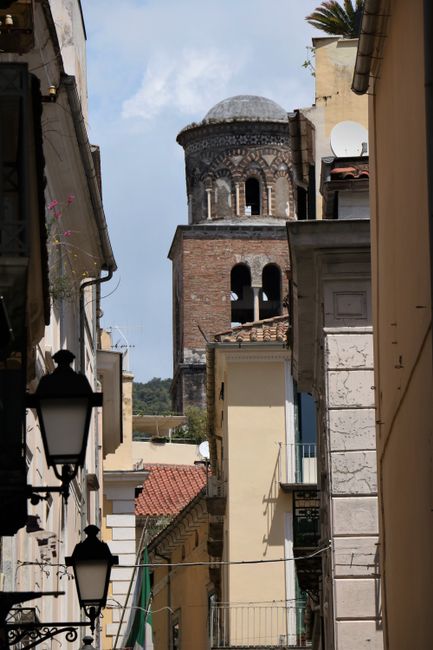
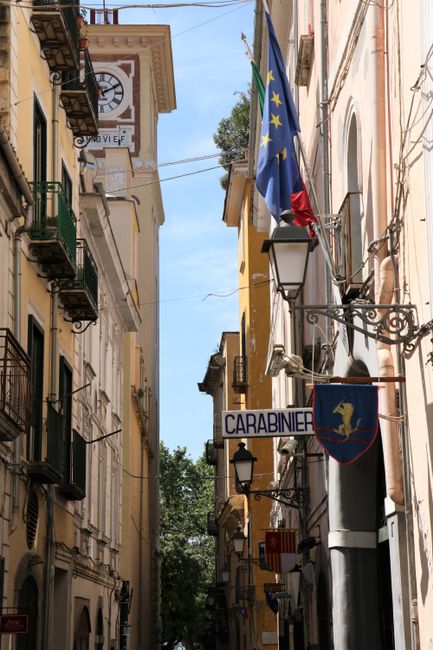
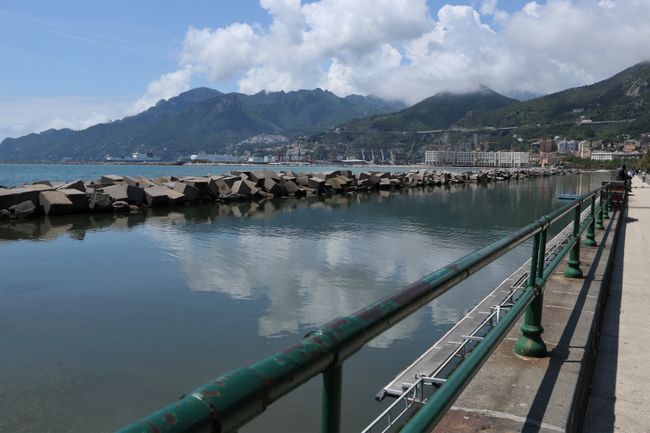
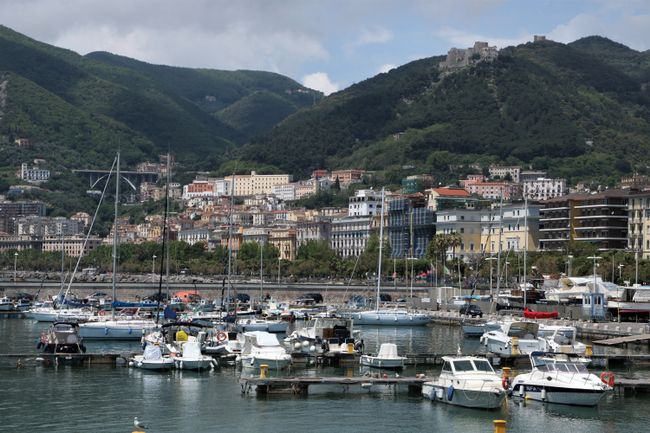
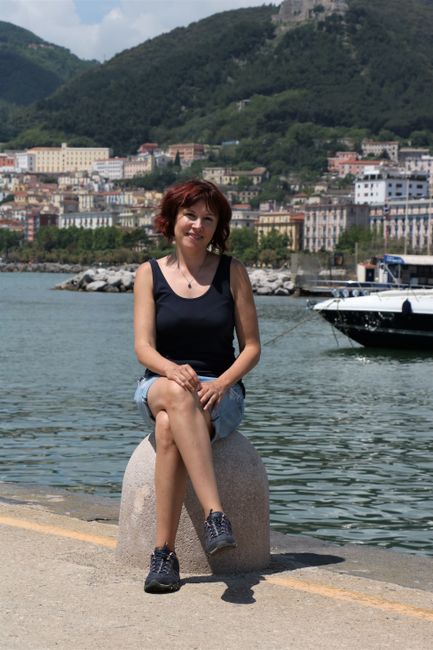
Nyorera kune Newsletter
Driving along the Amalfi Coast with public transportation can be quite exhausting. There are only buses to get from Sorrento to Salerno along the steep coast, and these buses (of course without toilets) are completely packed. So I find out, when I unsuspectingly arrive at the bus stop in Sorrento 10 minutes before departure, that the next bus is already fully booked and I have to join a long line of waiting people to possibly get a seat on the bus after the next one. This bus departs in 40 minutes. If it doesn't work out, it means waiting for another hour. I wonder what it's like here during peak season, because it's still early May, and a weekday. I wait more or less patiently in line and actually get a seat on the bus after the next one. But during the ride, it's impossible to leisurely look out the window and admire the landscape. There are at least twice as many people standing between the seats as allowed, they are thrown back and forth with every turn, bottles roll on the floor, and I struggle against the nausea caused by the constant braking and accelerating of the vehicle.
After about an hour, we arrive in Positano. Unfortunately, it's foggy, and thick clouds announce a thunderstorm. I imagined the Amalfi Coast differently. Nevertheless, I stroll through the village built right on the cliffs and try to imagine the area in sunshine.
When I board the bus to Amalfi, where I will spend the night, it starts pouring rain. The people who get on at the following stops are soaking wet; others have to wait for the next bus in the rain, because ours is hopelessly overcrowded again.
In Amalfi, the most famous place and namesake of the coast, I just want to eat something and go to bed. But the prices in the restaurants make me shake my head and confirm the village's VIP status: A vegetable soup for €10, a lasagna for €18. I buy bread, cheese, and yogurt at a grocery store and have dinner in my €50 mini room with a mini bathroom (the shower head sticks out directly above the toilet bowl; no shower curtain - once the water is turned on, the whole room floats).
The next day, the weather remains unchanged. Nevertheless, I visit Amalfi and can't understand why there's such a hype about a nice village that's not particularly special in any way. Then I take my favorite bus to Ravello and feel appeased. Because Ravello is really beautiful, even in fog. The town with 2,500 inhabitants sits on a 300 m high terrace above the sea and has a Moorish influence. There is much less tourism than in Amalfi, and I enjoy the peaceful idyll. By the way, Richard Wagner and his wife Cosima once came to Ravello on donkeys' backs and found inspiration there for his opera "Parsifal". I stroll through the village and don't want to leave, especially not on the overcrowded, jolting bus.
At some point, the rain starts again, and I get up for the one and a half hour journey to Salerno, where the Amalfi Coast ends and where I will stay overnight again. Salerno is not mentioned as worth seeing in my guidebook, but I find the town very pretty. It has a fortress, beautiful streets, and a promenade by the sea. And the sun is shining again... 😊
All in all, the Amalfi Coast has disappointed me a little bit. I'm sure it's a different experience on a sunny day, but traveling with public transportation will not be any less stressful, and some places - like Amalfi - are completely overcrowded and overpriced. But this is also an experience that I take with me, and I'm even more excited now for my train journey to Sicily and the historically significant cities under a hopefully shining Sicilian sun... 😊Nyorera kune Newsletter
Pindura
